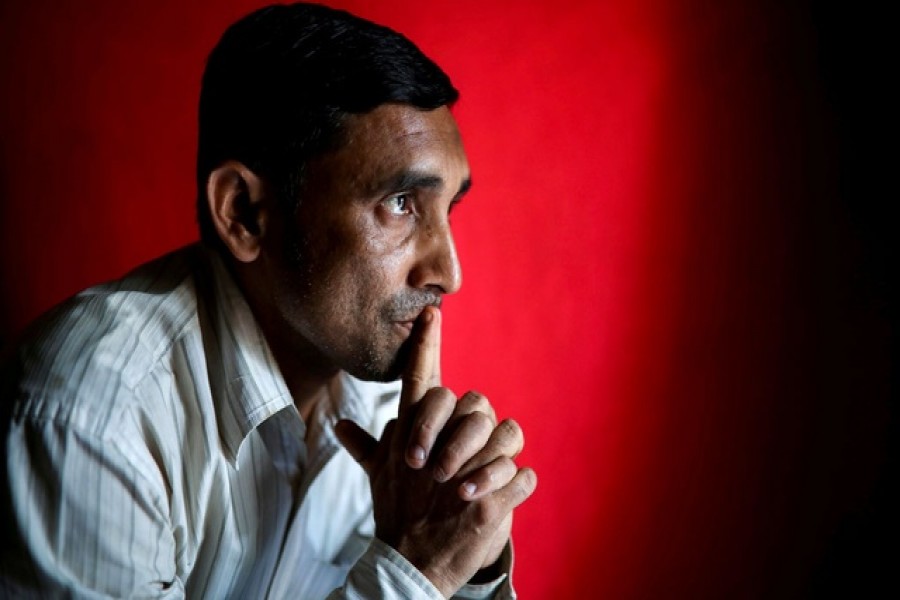The Armed Police Battalion (APBn) has arrested a man over his suspected ties to the killing of prominent Rohingya leader Mohammad Mohib Ullah in Cox's Bazar, bdnews24.com reports.
The suspect, who is also a member of the Rohingya community, was apprehended at a refugee camp in Ukhiya Upazila around 11 am Friday, according to SP Naimul Haque, commander of the 14th Armed Police Battalion.
The authorities did not reveal the identity of the suspect but said he is currently being interrogated.
A group of unidentified gunmen killed the 48-year-old Mohib Ullah at a refugee camp in Cox's Bazar's Ukhiya on Sept 30.
Mohib Ullah, chairman of the organisation, was talking to other Rohingya men about their repatriation to the Rakhine state in Myanmar at the time of the attack. A former teacher, Mohib Ullah, hailed from Sikder Para village in Rakhine’s Mongdu.
Although the assailants covered their faces with masks or towels, Mohib Ullah's brother Habib Ullah claimed he recognised some of them. They included Master Abdur Rahim, Lalu, Murshid and “other leaders of ARSA who reside in the camps”, according to Habib Ullah.
He suspects ARSA targeted Mohib Ullah because Bangladesh recently had positive talks with the international community, including the US and the UN on the repatriation of the Rohingya to Myanmar. “My brother was hopeful about quick repatriation.”
Their other brother, Ahmad Ullah said ARSA was angry at Mohib Ullah because he was emerging as a leader to all the members of the Rohingya and had connections with the UN and others in the international community. “They [ARSA] killed him because they did not accept him as a leader.”
ARSA had previously threatened to kill Mohib Ullah for working on the repatriation of the refugees, said Ahmad Ullah. This was the reason behind the deadly attack on Mohib Ullah, said his cousin Nurul Amin.
Mohib Ullah was known as a moderate who advocated for the Rohingya to return to Myanmar with rights they were previously denied during decades of persecution. His group Arakan Rohingya Society for Peace and Human Rights was founded in 2017 to document atrocities against Rohingya in their native Myanmar. He spoke at the White House and UN Human Rights Council, asking for Rohingya to be given more of a voice in their future.
More than 700,000 of the 1.1 million refugees in Bangladesh crossed the border in 2017 after a brutal Myanmar military crackdown dubbed “a textbook example of ethnic cleansing” by the UN.
The Myanmar military launched the operation in retaliation for deadly attacks on border posts claimed by ARSA.


